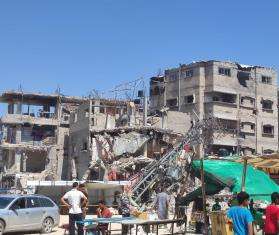The World Health Organization (WHO) announced today its first ever list of antibiotic-resistant bacteria that pose the greatest threats to public health. The list aims to encourage and mobilize innovators to conduct research and development on new antibiotics.
“WHO’s global priority pathogen list is a valuable and urgently-needed tool to help combat the growing challenges posed by antibiotic resistance. We see—with alarming regularity—the critical-listed bacterial infections in people we treat in the field, including babies and children, burn victims and conflict and trauma injuries. It’s getting harder to treat people for drug-resistant infections in the resource-limited settings in which we work. With the priority pathogen list, we need to urgently see new antibiotics developed that are affordable, appropriate and accessible to fill a depleted drug pipeline.
“It’s important to remember that tackling the growing AMR crisis isn’t just about new drugs. Improved diagnostics—ones that are fast, easy to use in field settings, and that can determine what infections are bacterial, identify what bacteria they are, and assess whether they are resistant to certain drugs—are crucial to reducing inappropriate antibiotic use in the first place. Better infection prevention and control measures, strengthened microbiology laboratory services and surveillance, increasing the use of suitable vaccines and better education of health professionals and patients on rational antibiotic use are among the best tools we have to prevent further development of resistant infections and avoid the unnecessary use of the precious antibiotics we currently have.
“Governments have made important commitments to change how R&D investment into new antibiotics is spent. They should now address priority health needs and ensure new antibiotics developed with public money are affordable and available to everybody who needs them, no matter where they live. Words on a piece of paper from high level meetings aren’t going to get us the antibiotics we need—governments should stop talking and start acting on their commitments.”
—Dr. Rupa Kanapathipillai, Doctors Without Borders/Médecins Sans Frontières' (MSF) antimicrobial resistance advisor


